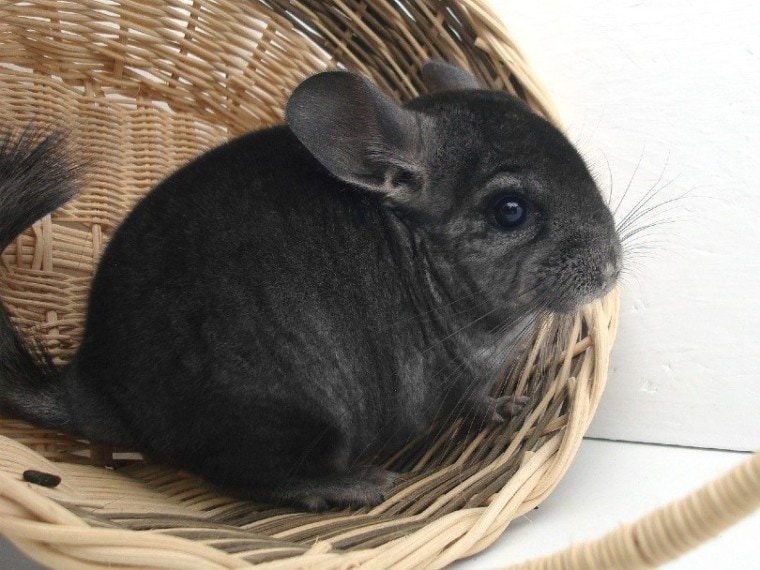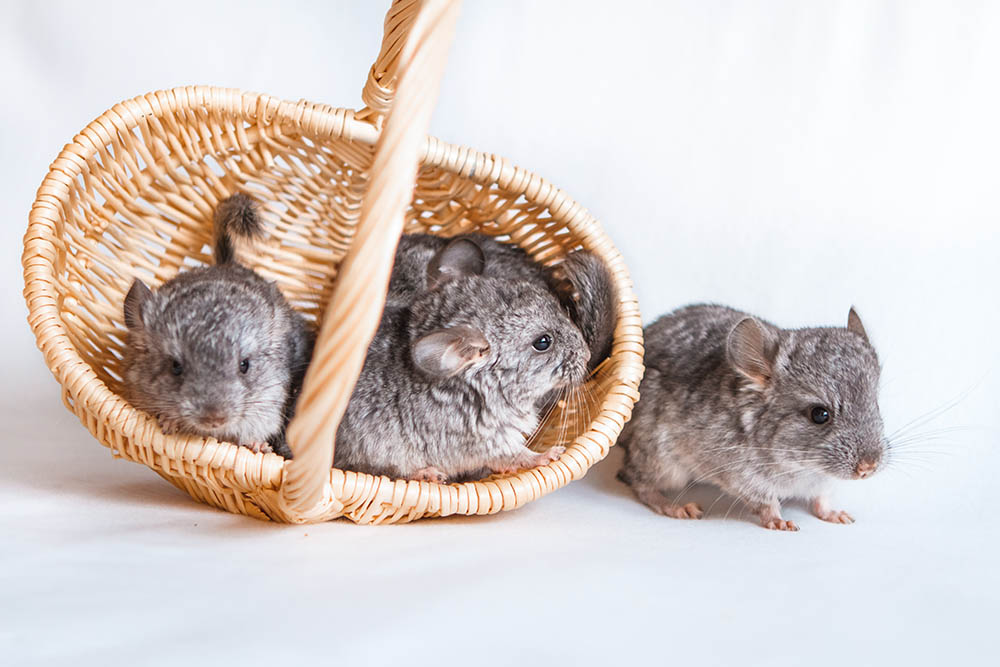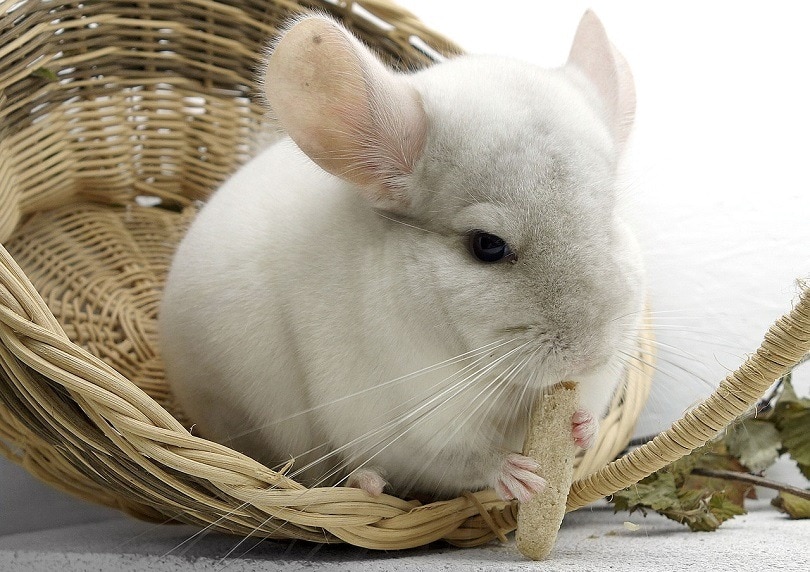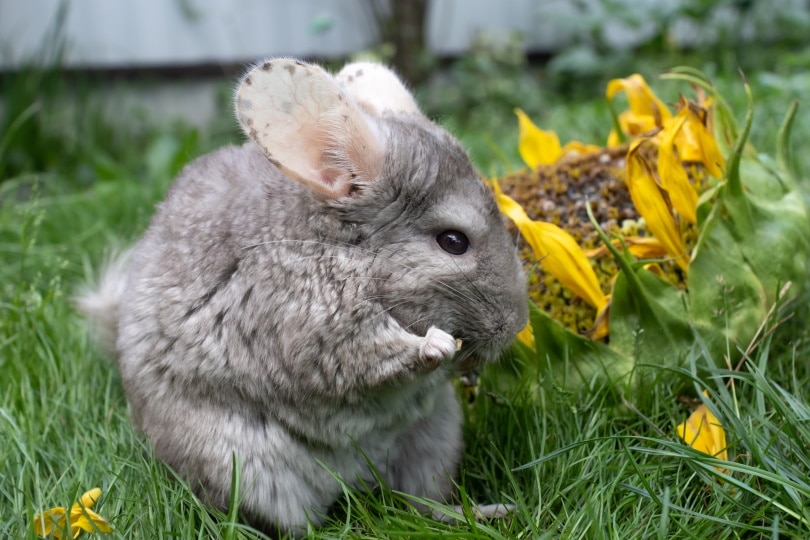
A regular dust bath is essential for all chinchillas. Taking a healthy dust bath is one of their innate behaviors, and it is how chinchillas keep their thick coats clean and healthy. A dust bath helps keep their dense coat smooth and silky, and it is also known to be fun and relaxing for chinchillas.
Chinchillas get into their bathtubs, rolling and flipping in the dust with great impulse. It is crucial to provide the proper supplies and offer the right care for your chinchilla as a pet owner.
How Often Should Chinchillas Take Dust Baths?
It is safe to offer your chinchilla a dust bath for about 10-20 minutes on a daily basis. Longer baths should be avoided, as chinchillas will readily overgroom in a bath to the point where they begin to do more harm to their coat than good.
Generally speaking, chinchillas don’t need motivation to use a dust bath. As long as you use the correct dust bath (which we’ll explain shortly) and remove the bath after around 10–20 minutes, it is acceptable to bathe your chinchilla on a daily basis.

Giving Your Chinchilla a Bath
Under no circumstances should you offer your chinchilla a water bath, as this is very detrimental to their health. Their dense fur coat can easily trap and retain moisture from water, which can quickly lead to infections of the skin. When offering your chinchilla a bath, stick to dust baths only.
There are several types of dust bath materials your chinchilla can roll around in:
To bathe your chinchilla, you will require a container big enough for them to roll around in. In addition, it should be heavy enough to make sure the chinchilla cannot knock it over when they are excitedly spinning around.
The container should preferably have tall sides to hold as much dust in the tub as possible, which means less cleaning for you. Some options may include a plastic shoe-sized container, ceramic serving container bowl, small fishbowl, or heavy stoneware bowl. However, if you want something firm and durable, consider buying a bathhouse for your chinchilla.
Here is how to give your chinchilla a dust bath step-by-step.
The best time to bathe your chinchilla is at dusk since this is when their day tends to begin.
It is best not to reuse the dust once your chinchilla has rolled around in it, as, left outside, the dust can begin to eventually clump.

Why Can’t Chinchillas Bathe in Water?
As mentioned earlier, chinchillas should not be offered a bath in water. Among all land mammals, chinchillas possess the densest fur coat. Giving them a bath in water leads to water and moisture retention, which can lead to skin issues, often in the form of fungal or bacterial infections. Should the fur eventually shed, there is a chance that the replacement fur is not the same color as the original fur.
This dense coat is also why temperature and humidity controls are important factors when housing a chinchilla, as humid climates can quickly lead to coat issues and skin infections in chinchillas.
A chinchilla’s preferred temperature range indoors is 50 to 60°F (10 to 16°C). Their humidity preference is low, as they are better adapted to dry, cool environments rather than humid, warm environments.
A good general rule is to add the unit values of the temperature (in Fahrenheit) and humidity and consider any value >150 to be dangerous for your chinchilla. For example, 85°F + 65% humidity = 150, which is likely detrimental to your chinchilla. In this environment, they will likely develop a matted fur coat and are even susceptible to heat stroke.
Final Thoughts
Chinchillas instinctively love taking dust baths, and it can keep their skin and fur fresh and healthy. In addition, it is an adorable sight to watch. The dust is meant to imitate the substrate chinchillas would use in their natural habitat to eliminate dirt and oil from the fur.
Chinchillas should not be bathed in water to avoid fungal infections and other health problems. Luckily, they are self-cleaning pets and don’t require too much assistance to stay soft and fresh. Offering your pet a dust bath once a day for a duration of 10–20 minutes should be considered mandatory for their well-being.
Featured Image Credit: benjamingross83, Pixabay









